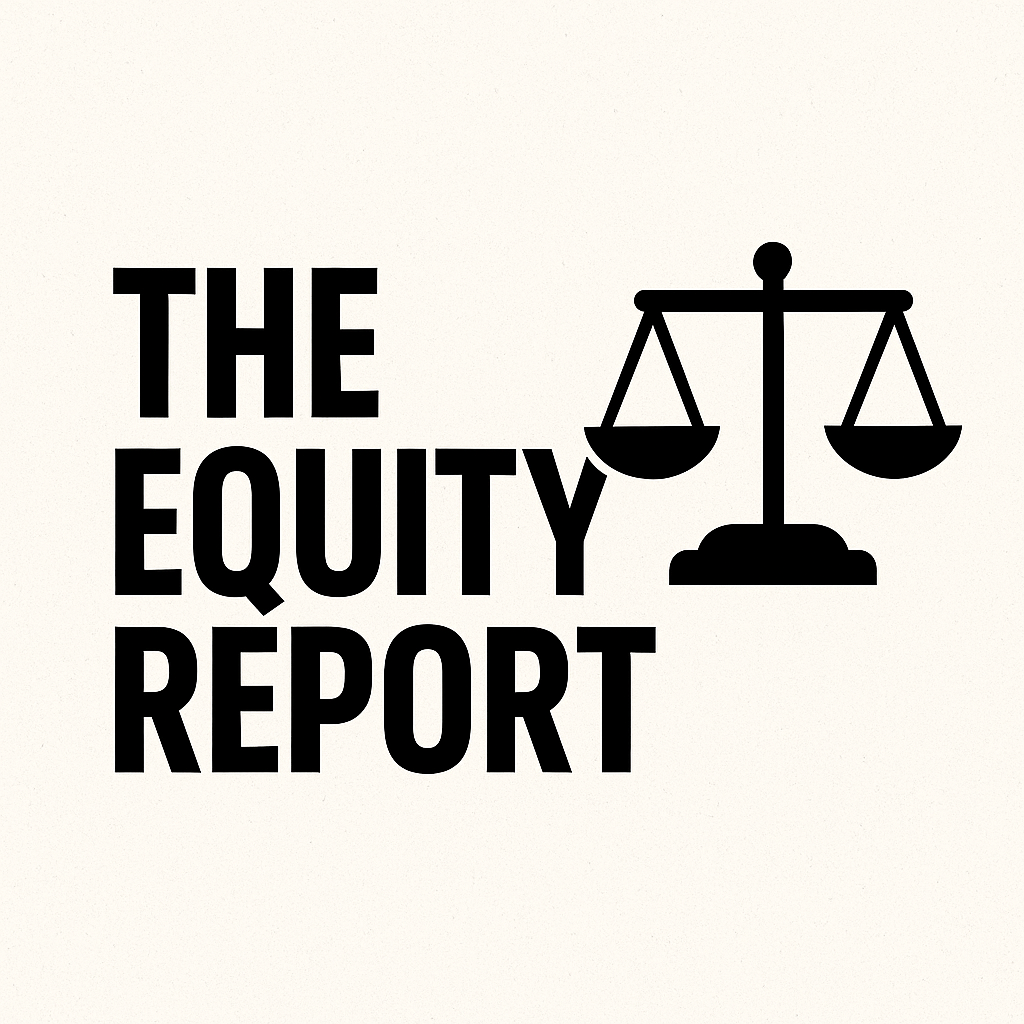
Copy_Paste_Remix_#4: Black Folks Influence Everything: From the Black Panther Party to Black Twitter
This essay argues that Black Americans function as foundational architects of American culture, shaping the nation’s political imagination, aesthetic traditions, linguistic innovation, and digital expression across decades. Tracing a progression from the radical visual and political interventions of the 1960s to the algorithmic dynamics of Black Twitter and contemporary digital culture, the analysis demonstrates how Black creativity consistently sets the cultural tempo of the United States. Drawing on scholarship in Black studies, cultural theory, and media studies, the essay examines how Black expressive forms, ranging from the organizing strategies of the Black Panther Party to the global dominance of hip hop and Afrofuturist cinema, circulate beyond their communities of origin and often become commodified or detached from their political foundations. By situating Black cultural production within the framework of racial capitalism and diasporic influence, the essay contends that American culture is structurally dependent on Black innovation while frequently obscuring its origins. Ultimately, it asserts that Black cultural labor is not peripheral to the American story but constitutive of it.

The Equity Report #6: The Liberation of Black Studies: A Quest for Identity in Africana Studies
This Equity Report examines the intellectual and institutional evolution from Black Studies to Africana Studies, tracing the field’s expansion from a U.S.-centered academic intervention to a diasporic framework of global analysis. Building on the insurgent origins of Black Studies in the late 1960s, the essay explores how scholars confronted the limitations of national boundaries in understanding Black identity and racial capitalism. Drawing from Pan-African thought, diaspora theory, Afrocentric scholarship, and Black feminist critique, the report analyzes how Africana Studies emerged as a broader epistemological project that situates African-descended peoples within transnational histories of colonialism, migration, resistance, and cultural production. The essay argues that this shift was not a departure from Black Studies but its theoretical maturation. Africana Studies functions as both archive and horizon, preserving the political accountability of its origins while expanding its analytical scale to examine global anti-Blackness and diasporic identity formation. Ultimately, the report positions Africana Studies as a living discipline that continues to redefine knowledge production, institutional responsibility, and the global contours of Black self-determination.
—Telisa Nyoka King, M.A.

The Equity Report #5: What is Black Studies?
Black Studies emerged as a corrective intervention within Western higher education, addressing the systematic exclusion of Black people as legitimate producers of knowledge. This essay traces the intellectual, political, and institutional foundations of Black Studies, situating its origins within long-standing Black intellectual traditions and the liberation struggles that culminated in its formal establishment during the late 1960s. Drawing on the work of foundational scholars including W.E.B. Du Bois, Carter G. Woodson, and Nathan Hare, the essay examines how Black Studies developed as an interdisciplinary and explicitly political field accountable to Black communities rather than institutional norms of neutrality. Central attention is given to the role of Black feminists—such as Anna Julia Cooper, Angela Davis, Audre Lorde, bell hooks, and the Combahee River Collective—in expanding the field’s analytic frameworks through critiques of patriarchy, capitalism, and heteronormativity. The essay further analyzes the creation of Black Studies through student-led movements, particularly the 1968–1969 San Francisco State strike, highlighting how institutional recognition was achieved through collective resistance rather than administrative reform. Ultimately, the essay argues that Black Studies functions as both a discipline and a praxis, redefining knowledge production, challenging dominant epistemologies, and sustaining an ongoing commitment to justice, community accountability, and intellectual self-determination.
—Telisa Nyoka King, M.A.

The Equity Report #4: The 100th Anniversary of Black History Month: From Negro History Week to a Global Framework for Historical Justice
This equity report essay examines the 100-year evolution of Black History Month, tracing its origins from Negro History Week in 1926 to its contemporary global observance. Founded by Carter G. Woodson as a corrective to the systematic erasure of Black people from dominant historical narratives, Negro History Week functioned as a political and educational intervention rather than a symbolic celebration. The essay analyzes how the expansion to Black History Month in 1976 marked both increased institutional recognition and the risk of containment, wherein historical inclusion substitutes for structural transformation. Drawing on equity frameworks, the essay distinguishes between representation and redistribution, arguing that visibility without shifts in power, resources, and curricular authority reproduces historical inequities. It further situates Black History Month within a transnational context shaped by colonialism and racial capitalism, while addressing contemporary backlash against Ethnic Studies and historical truth. The essay concludes that the centennial of Black History Month underscores unfinished work, calling for an equity-centered approach that embeds Black history as foundational to education, policy, and cultural production rather than confined to a designated timeframe.
—Telisa Nyoka King, M.A.

Copy_Paste_Remix_#3: “Who Gets a Name?: Keith Porter Jr., Renee Good, and the Politics of Public Memory
This essay examines the racialized dynamics of media attention, public memory, and movement co-optation through a comparative analysis of two recent killings by U.S. Immigration and Customs Enforcement agents. The deaths of Keith Porter Jr., a Black man killed in Los Angeles in December 2025, and Renee Nicole Good, a white woman killed in Minneapolis one week later, reveal stark disparities in visibility, narrative framing, and national response. While both cases raise serious questions about state violence and accountability, only one rapidly entered the national consciousness through widespread media coverage, political response, and formal documentation. Drawing on the historical aims of movements such as Say Her Name and Black Lives Matter, the essay argues that the uneven recognition of these deaths reflects broader structures of racial inequality that determine whose lives are publicly mourned and whose remain obscured. The analysis highlights how symbolic justice movements risk dilution when attention is redirected toward already visible narratives, reinforcing rather than disrupting racial hierarchies of grief, legitimacy, and remembrance.
—Telisa Nyoka King, M.A.

The Proposal Lab #1: What is Equity-Centered Grant Writing?
Grant writing is often treated as a neutral skill, focused on polish, alignment, and outcomes. This essay challenges that assumption. It argues that funding systems are shaped by power, history, and politics, and that equity-centered grant writing requires refusing the myth of neutrality altogether. Rather than rewarding institutional polish or deficit-based storytelling, equity-centered grant writing centers community knowledge, ethical accountability, and structural analysis. It asks who defines success, whose risk is prioritized, and what justice-oriented funding could look like if dignity were never treated as a bargaining chip. More than a method for winning grants, equity-centered grant writing is framed as a stance, one that insists funding be aligned with repair, trust, and the collective power of communities to shape their own futures.
— Telisa Nyoka King, M.A.

The Equity Report #3: The Canon of Ethnicity, Race, Class & Nation Formation in the United States
This essay traces the intellectual architecture of Ethnic Studies through the intertwined analyses of race, class, gender, and nation. Beginning with Omi and Winant’s Racial Formation in the United States (2015), it situates race as a social construct shaped through historical struggle and institutional power, then expands outward to encompass the broader canon that defines Ethnic Studies as a field of liberation. Drawing on the decolonial consciousness of Fanon’s The Wretched of the Earth (1961), the pedagogical radicalism of Freire’s Pedagogy of the Oppressed (1970), and the intersectional analyses of Davis’s Women, Race & Class (1981) and Robinson’s Black Marxism (1983), the essay articulates Ethnic Studies as both a political movement and a knowledge system. It further integrates the cultural theories of Anzaldúa’s Borderlands/La Frontera (1987), Moraga and Anzaldúa’s This Bridge Called My Back (1981), Said’s Orientalism (1978), Lowe’s Immigrant Acts (1996), and Takaki’s A Different Mirror (1993) to demonstrate how the field redefines representation, labor, and belonging across diasporas. Through a reflective synthesis, the essay asks what culture might become if not born in reaction to domination—arguing that Ethnic Studies, at its core, is a discipline of becoming, one that envisions liberation not as reaction but as creation.
— Telisa Nyoka King, M.A.

The Equity Report #2: Rest in Power, Assata Shakur
“I believe in living. I believe in the power of the people.” — Assata Shakur (1987)
This essay, Rest in Power, Assata Shakur, examines the political and intellectual legacy of Assata Shakur (1947–2025), whose life epitomized the convergence of scholarship, struggle, and sacrifice within Black liberation movements. Situating Shakur within the historical emergence of Black Studies, the essay traces her evolution from student activist at Howard University to member of the Black Liberation Army, emphasizing how her lived experience embodied the praxis of revolutionary knowledge. It interrogates the state repression that criminalized her activism, culminating in her 1977 conviction and 1979 prison escape—an act that redefined the parameters of resistance and exile. Shakur’s decades of asylum in Cuba are analyzed as both a political sanctuary and a site of transnational solidarity that linked African-diasporic and Third World liberation struggles. Through her seminal text Assata: An Autobiography (1987), she articulated a pedagogy of survival that continues to inform abolitionist education, feminist thought, and racial-justice movements. Her death in 2025 while still listed on the FBI’s Most Wanted Terrorists roster underscores the enduring fear of radical Black womanhood in the U.S. national imagination. Ultimately, the essay contends that Shakur’s life and legacy demand a redefinition of freedom—not as peace, but as perpetual vigilance, memory, and collective transformation.
— Telisa Nyoka King, M.A.

Copy_Paste_Remix_#2: The People’s Choice —Zohran Mamdani and the New York We Deserve
This essay, The People’s Choice: Zohran Mamdani and the New York We Deserve, examines the cultural and political significance of Zohran Mamdani’s historic election as New York City’s 111th mayor. Moving beyond conventional political reporting, it interprets Mamdani’s victory as a rupture in the city’s power narrative—one that redefines representation, equity, and belonging for immigrant, working-class, and Muslim communities. Through a lens of identity politics and moral economy, the essay explores how Mamdani’s platform—housing justice, public-transit equity, and NYPD accountability—translates grassroots values into policy ambition. It situates his rise within a broader critique of neoliberal governance, arguing that Mamdani embodies a new political remix that fuses community organizing with institutional leadership. Ultimately, the essay positions his election as both a reflection and a reimagining of New York’s collective self-image, suggesting that the city has not only chosen a mayor but mirrored its most human aspirations back to itself.
— Telisa Nyoka King, M.A.

Copy_Paste_Remix_#1: SNAP Judgment — When the United States Criminalizes Hunger
This essay, “SNAP Judgment: When the United States Criminalizes Hunger,” examines how the Supplemental Nutrition Assistance Program (SNAP) reveals the structural violence embedded in U.S. social policy. Framed through an Ethnic Studies lens, it traces the racialized history of welfare discourse—from Reagan’s “welfare queen” myth to modern debates over work requirements—and exposes how hunger is politicized as a moral failure rather than a policy design. Drawing on recent data from the U.S. Department of Agriculture and equity-focused research from the Center on Budget and Policy Priorities, the essay argues that SNAP’s erosion reflects a broader ideology that privileges corporate subsidy over human survival. It also spotlights Bay Area food banks as sites of grassroots resistance, demonstrating how community-led food justice efforts sustain dignity where federal safety nets fail. Ultimately, the piece contends that hunger in America is not accidental but deliberate—a product of systemic inequity disguised as fiscal discipline, and a mirror reflecting who this nation chooses to feed and who it allows to starve.
—Telisa Nyoka King, M.A.

The Equity Report #1: How did Ethnic Studies come to be?
How did Ethnic Studies come to be? traces the historical emergence of Ethnic Studies as both an intellectual and political project rooted in the social upheavals of the late 1960s. It situates the field’s origins within the broader struggle for racial justice that followed the passage of the Civil Rights and Voting Rights Acts, when the unfulfilled promises of legal equality gave rise to new forms of resistance and community self-determination. Drawing on key uprisings across U.S. cities—from Watts to Detroit—the essay argues that Ethnic Studies was born from the convergence of grassroots activism, educational inequity, and systemic neglect, culminating in the 1968–69 San Francisco State College Strike led by the Black Student Union and the Third World Liberation Front. That 136-day strike, the longest in U.S. history, established the nation’s first and only independent College of Ethnic Studies, setting a precedent for similar movements at universities nationwide. By linking this history to contemporary frameworks of racial equity, community-based research, and culturally responsive grantmaking, the essay illuminates Ethnic Studies as a living architecture of equity—one that bridges activism, academia, and applied practice. Its enduring legacy demonstrates that the pursuit of justice within education and public institutions is not a single event but a continuous, evolving process grounded in collective struggle and cultural knowledge.
— Telisa Nyoka King, M.A.
